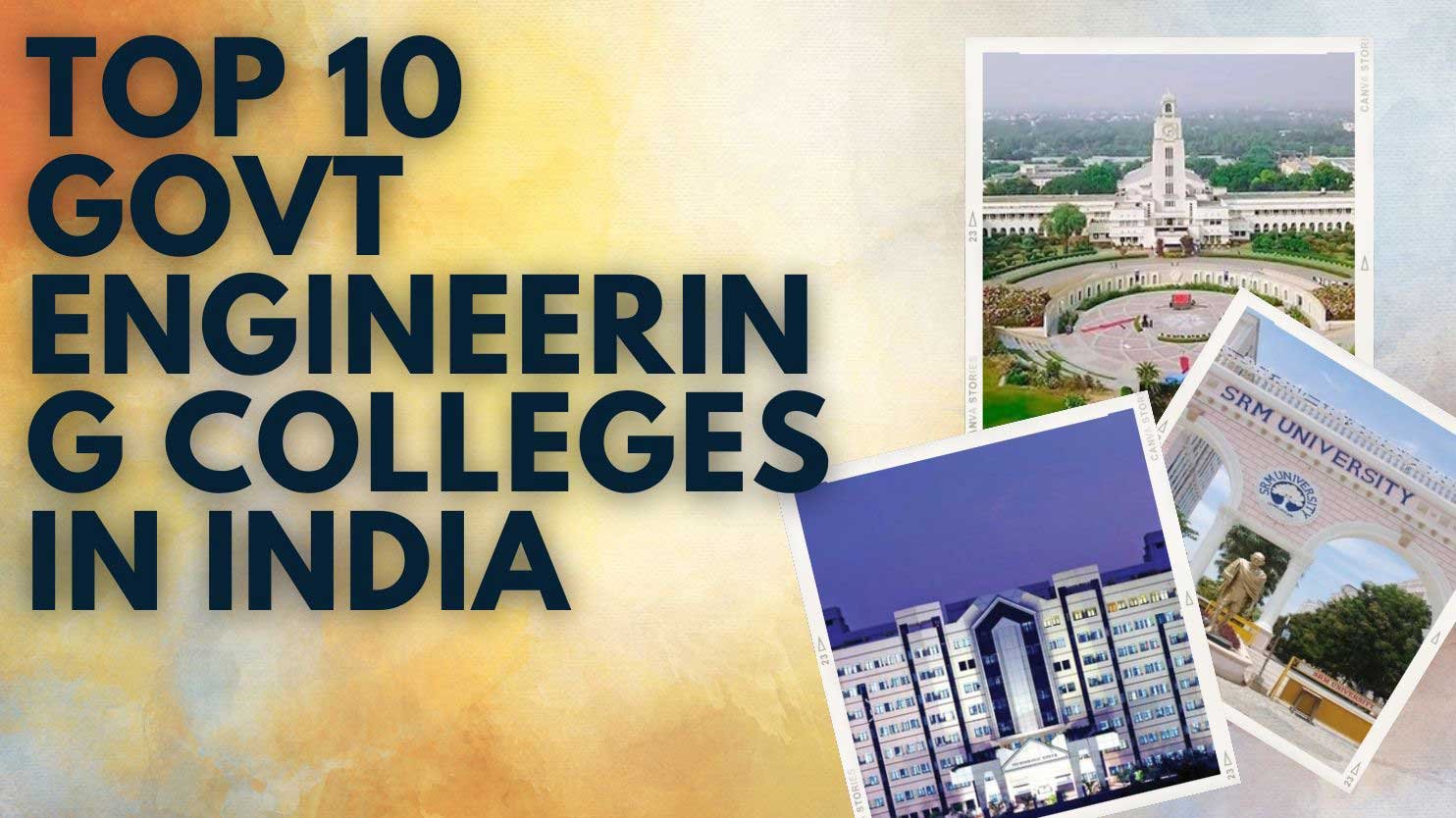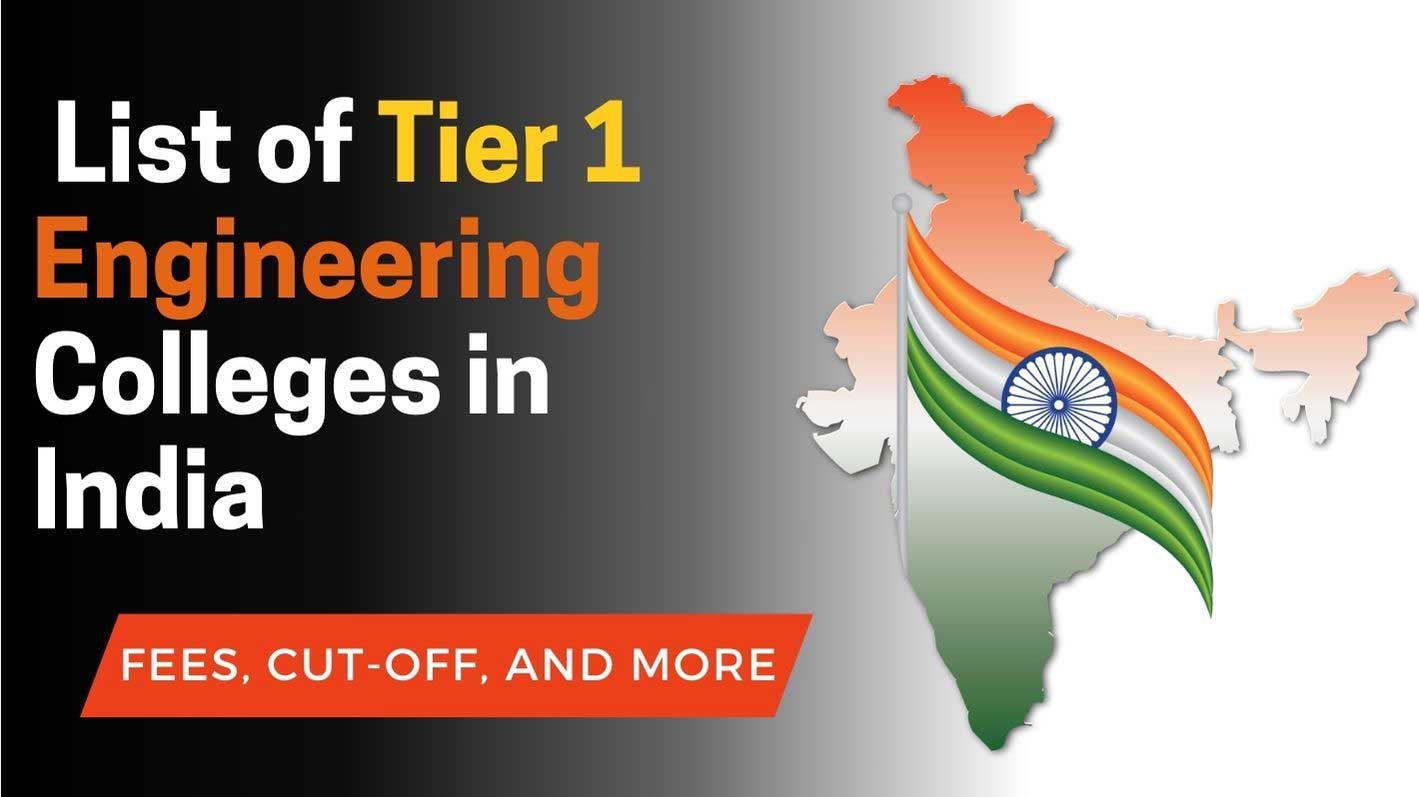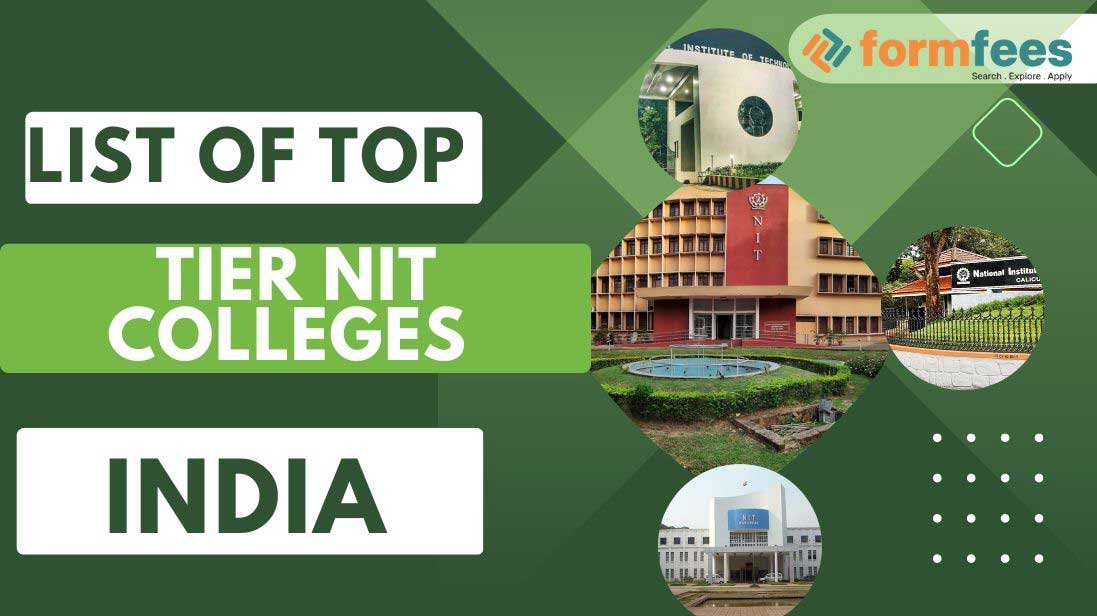Table of Contents
Are you ready to build a career in M.tech Geotechnical Engineering? M.tech in Geotechnical Engineering is one of the best courses to choose from when it comes to M.tech. The M.Tech Geotechnical Engineering is a vast subfield when it comes to civil engineering, M.tech Geotechnical Engineering Helps students to understand the basic concepts of managing the behavior of earth materials to ensure the stability and durability of structures.
M.Tech Geotechnical Engineering Introduction
The M.Tech program in Geotechnical Engineering is a two-year course that focuses on the behavior of soil and earth materials in the field of civil engineering. Geotechnical engineering is not only essential in civil engineering but also finds applications in various other fields such as military, mining, petroleum, and other construction-related disciplines involving the ground.
This branch of M.Tech Geotechnical Engineering plays a crucial role in the design and construction of structures like dams, embankments, foundations, retaining walls, anchors, tunnels, and other subsoil-interacting structures, both onshore and offshore. It shares common interests with related disciplines such as engineering geology, structural engineering, and petroleum engineering.
The subjects covered in this course encompass a wide range of topics, including aeromechanics, earthquake engineering, and soil dynamics. Additionally, students also study areas like site improvement, groundwater, pollutant transport, the chemical behavior of soil, and waste disposal facilities.
M.Tech Geotechnical Engineering Highlights
| Highlights | Description |
|---|---|
| Degree | Master of Technology (M.Tech) in Geotechnical Engineering |
| Duration | Typically 2 years (4 semesters) |
| Eligibility | Bachelor's degree in Civil Engineering or a relevant field |
| Admission Process | Entrance examination (GATE or university-specific), followed by personal interview |
| Exam Type | Semester wise |
| Average Course Fees | INR 1,50,000 to 4,00,000 |
| Core Subjects | Soil Mechanics, Foundation Engineering, Rock Mechanics, Geotechnical Earthquake Engineering |
| Elective Subjects | Ground Improvement Techniques, Geotechnical Investigation and Testing, Soil Dynamics |
| Research Opportunities | Thesis or dissertation work in Geotechnical Engineering research areas |
| Industrial Training | Practical training in construction companies or geotechnical engineering firms |
| Seminars and Workshops | Attend seminars, workshops, and conferences to enhance knowledge and network with experts |
| Field Visits | Site visits to construction projects or geotechnical sites for practical exposure |
| Laboratory Facilities | Access to advanced geotechnical engineering laboratories for testing and analysis |
| Career Prospects | Geotechnical Engineer, Foundation Engineer, Geotechnical Consultant, Researcher, Professor |
| Job Opportunities | Government departments, infrastructure projects, engineering consultancies, research institutes |
| Salary | INR 4,00,000 to 10,00,000 |
| Further Education Options | Ph.D. in Geotechnical Engineering or related field |
What is M.Tech Geotechnical Engineering?
M.Tech Geotechnical Engineering is a postgraduate degree program that specializes in the field of Geotechnical Engineering. Geotechnical engineering is a sub-discipline of civil engineering that deals with the behavior of earth materials, including soil and rock, and their interaction with structures and infrastructure.
The M.Tech Geotechnical Engineering program is designed to provide students with advanced knowledge and skills in analyzing, designing, and managing geotechnical systems. It covers a wide range of subjects such as soil mechanics, foundation engineering, geotechnical site investigation, slope stability, geotechnical earthquake engineering, ground improvement techniques, and geosynthetics.
During the course of the M.Tech Geotechnical Engineering program, students delve into theoretical concepts and practical applications through classroom lectures, laboratory experiments, and research projects. They gain a deep understanding of the properties and behavior of soils and rocks, learn how to assess site conditions, and develop strategies for designing safe and cost-effective foundations and earth structures.
M.Tech Geotechnical Engineering programs also emphasize the use of advanced geotechnical software and techniques for data analysis, numerical modeling, and simulation. Students are exposed to real-world case studies, field visits, and practical training, which enable them to tackle geotechnical challenges encountered in construction projects, infrastructure development, and environmental management.
Upon completion of the M.Tech Geotechnical Engineering program, graduates are equipped with the expertise to work as geotechnical engineers, design consultants, project managers, and researchers. They can contribute to various sectors, including civil engineering firms, construction companies, government agencies, research institutions, and academia.
Why study M.Tech Geotechnical Engineering?
Studying M.Tech Geotechnical Engineering offers numerous compelling reasons to aspiring students. Here are some key benefits and reasons to consider pursuing this field:
1. Specialised Expertise: M.Tech Geotechnical Engineering equips you with specialized knowledge and skills in analyzing and managing the behavior of soil and rock. This expertise is in high demand in the construction industry, where geotechnical engineers play a crucial role in ensuring the stability and durability of structures.
2. Vital for Infrastructure Development: Geotechnical engineering is essential for the development of infrastructure projects such as buildings, bridges, dams, tunnels, and highways. By studying M.Tech Geotechnical Engineering, you become equipped to contribute to the planning, design, and execution of such projects, ensuring their safe and sustainable construction.
3. Challenging and Dynamic Field: Geotechnical engineering presents unique challenges due to the variability of soil and rock conditions. This field demands innovative thinking, problem-solving skills, and adaptability. As a geotechnical engineer, you will encounter diverse geologic conditions, ranging from soft soils to hard rock, and will need to find practical and cost-effective solutions.
4. Promising Career Prospects: Graduates of M.Tech Geotechnical Engineering programs are in high demand in the job market. The growing infrastructure development, urbanization, and the need for sustainable solutions have increased the demand for geotechnical engineers. You can pursue exciting career opportunities in consulting firms, construction companies, government agencies, research organizations, and academia.
5. Interdisciplinary Collaboration: Geotechnical engineering involves collaboration with professionals from various disciplines such as civil engineering, geology, hydrology, and environmental science. Through interdisciplinary collaboration, you gain exposure to different perspectives and acquire a holistic approach to problem-solving.
6. Research and Innovation: M.Tech Geotechnical Engineering programs often include research components that allow you to contribute to the advancement of knowledge in the field. You can explore new techniques, technologies, and methodologies to address emerging challenges in geotechnical engineering, making a significant impact on the industry.
7. Global Opportunities: Geotechnical engineering is a globally relevant field. With an M.Tech degree in Geotechnical Engineering, you can explore job opportunities and contribute to projects around the world. The demand for geotechnical expertise extends beyond borders, offering you the chance to work on diverse and impactful projects internationally.
M.Tech Geotechnical Engineering Admission Process
The admission process for M.Tech Geotechnical Engineering typically involves the following steps:
1. Application: Candidates need to submit an application to the university or institution offering the M.Tech Geotechnical Engineering program. Applications are usually submitted online through the institution's official website. The application form may require personal information, educational background, academic records, entrance exam scores (if applicable), and any other requested documentation.
2. Entrance Exam: If the university or institution requires an entrance exam for M.Tech admissions, candidates must register for the exam and appear on the scheduled date. The most common entrance exam for M.Tech Geotechnical Engineering in India is GATE (Graduate Aptitude Test in Engineering). The exam assesses candidates' knowledge in engineering and science subjects, and the scores are often used as a basis for admission.
3. Selection Process: After the application deadline and entrance exams, the institution will evaluate the applications based on predetermined criteria. This evaluation may include entrance exam scores, academic performance, work experience (if applicable), and any other specified selection parameters. Shortlisted candidates will be invited for further rounds, such as interviews or written tests (if applicable).
4. Interview/Written Test: Some institutions may conduct interviews or written tests to assess candidates' subject knowledge, problem-solving skills, and aptitude for the M.Tech Geotechnical Engineering program. These rounds aim to evaluate the candidate's understanding of the field and their suitability for the program.
5. Merit List and Admission Offer: Based on the evaluation of applications, entrance exam scores, and performance in interviews/written tests, the institution will prepare a merit list. Candidates who meet the criteria and rank high on the merit list will receive admission offers. The admission offer may include details such as the program commencement date, fee payment deadlines, and other relevant instructions.
6. Confirmation of Admission: Upon receiving an admission offer, candidates need to confirm their acceptance by paying the required fees within the specified deadline. This confirms their seat in the M.Tech Geotechnical Engineering program.
Who is Eligible for M.Tech Geotechnical Engineering?
1. Educational Background: Typically, candidates must hold a Bachelor's degree in Civil Engineering or a related field from a recognized university or institution. Some programs may accept candidates with degrees in Mechanical Engineering or other relevant disciplines, provided they have a strong foundation in mathematics, physics, and mechanics.
2. Minimum Grades: Most universities require candidates to have a minimum percentage or CGPA (Cumulative Grade Point Average) in their undergraduate studies, often ranging from 60% to 75%. Some institutions may have specific grade requirements in core subjects related to geotechnical engineering.
3. Entrance Exams: Many universities conduct entrance exams for admission into M.Tech programs, including Geotechnical Engineering. Common entrance exams in India include GATE (Graduate Aptitude Test in Engineering), which assesses candidates' knowledge in engineering and science subjects. Candidates are typically required to obtain a qualifying score in the entrance exam to be eligible for admission.
4. Work Experience: While not always mandatory, some institutions may prefer or require candidates to have relevant work experience in the field of civil engineering or geotechnical engineering. This requirement may vary depending on the M.Tech Geotechnical Engineering program and university.
5. Language Proficiency: Candidates whose primary language of instruction during their undergraduate studies is not English may be required to provide proof of English language proficiency through tests such as TOEFL (Test of English as a Foreign Language) or IELTS (International English Language Testing System).
M.Tech Geotechnical Engineering Entrance Exams
| Entrance Exam | Conducting Body | Description |
|---|---|---|
| GATE (Geotechnical Engineering) | Indian Institute of Technology (IITs) and Indian Institute of Science (IISc) | National-level exam for admission to postgraduate engineering programs |
| JEE Advanced (AAT) | Joint Entrance Examination (JEE) Advanced | For admission to Indian Institutes of Technology (IITs) for B.Tech graduates seeking M.Tech in Geotechnical Engineering |
| AP PGECET | Andhra University | State-level exam for admission to postgraduate engineering programs in Andhra Pradesh, India |
| TS PGECET | Osmania University | State-level exam for admission to postgraduate engineering programs in Telangana, India |
| TANCET | Anna University | State-level exam for admission to postgraduate engineering programs in Tamil Nadu, India |
| PGECET | Jawaharlal Nehru Technological University (JNTU) | State-level exam for admission to postgraduate engineering programs in various states of India |
| GAT (PGECET) | GITAM University | University-level exam for admission to postgraduate engineering programs at GITAM University |
| LPUNEST | Lovely Professional University | University-level exam for admission to postgraduate engineering programs at Lovely Professional University |
M.Tech Geotechnical Engineering Syllabus
| Semester | Subjects |
|---|---|
| 1st Semester | Advanced Soil Mechanics |
| Foundation Engineering | |
| Geotechnical Earthquake Engineering | |
| Advanced Geotechnical Laboratory | |
| Numerical Methods in Geotechnical Engineering | |
| 2nd Semester | Geotechnical Investigation and Testing |
| Geotechnical Engineering for Transportation | |
| Ground Improvement Techniques | |
| Advanced Foundation Engineering | |
| Rock Mechanics and Tunnelling | |
| 3rd Semester | Design of Geosynthetics in Geotechnical Engineering |
| Soil Dynamics and Machine Foundations | |
| Deep Foundations and Retaining Structures | |
| Geotechnical Engineering for Offshore Structures | |
| Elective 1 (Choose from a list of electives) | |
| 4th Semester | Dissertation/Thesis |
Note: The above table provides a general overview of the subjects that are typically included in the syllabus for M.Tech Geotechnical Engineering. The specific subjects and their order may vary between universities or institutions. Additionally, the fourth semester is usually dedicated to research work in the form of a dissertation or thesis, where students pursue independent research in a chosen area of geotechnical engineering.
M.Tech Geotechnical Engineering Top Colleges in India
| College | Location | Approximate Fees (in INR) |
|---|---|---|
| VIT University | Vellore, Tamil Nadu | 3,00,000 - 4,00,000 |
| SRM Institute of Science and Technology | Chennai, Tamil Nadu | 2,00,000 - 3,00,000 |
| Manipal Institute of Technology | Manipal, Karnataka | 3,00,000 - 4,00,000 |
| Amity University | Noida, Uttar Pradesh | 1,50,000 - 2,50,000 |
| Lovely Professional University (LPU) | Phagwara, Punjab | 2,00,000 - 3,00,000 |
| Hindustan Institute of Technology and Science | Chennai, Tamil Nadu | 2,00,000 - 3,00,000 |
| Galgotias University | Greater Noida, UP | 1,50,000 - 2,50,000 |
| Birla Institute of Technology and Science (BITS) | Pilani, Rajasthan | 3,00,000 - 4,00,000 |
| SASTRA Deemed University | Thanjavur, Tamil Nadu | 2,50,000 - 3,50,000 |
| Sharda University | Greater Noida, UP | 2,00,000 - 3,00,000 |
What is the Scope of M.Tech Geotechnical Engineering?
M.Tech Geotechnical Engineering offers a wide scope of career opportunities and professional growth. Here are some aspects of the scope of M.Tech Geotechnical Engineering:
1. Infrastructure Development: Geotechnical engineers play a vital role in the design, construction, and maintenance of infrastructure projects. They are involved in the development of buildings, bridges, highways, tunnels, dams, and other critical structures. With an M.Tech Geotechnical Engineering degree, you can contribute to the planning, analysis, and implementation of these projects, ensuring their stability, safety, and longevity.
2. Geotechnical Consultancy: Many M.Tech Geotechnical Engineering graduates find employment in geotechnical consulting firms. These firms provide specialized services in geotechnical investigation, foundation design, slope stability analysis, ground improvement techniques, and more. As a geotechnical consultant, you will work on a variety of projects, provide expert advice, conduct site investigations, and offer solutions for geotechnical challenges.
3. Research and Development: With an M.Tech Geotechnical Engineering degree, you can pursue research and development opportunities in academia or research institutions. You can contribute to advancing knowledge in geotechnical engineering by conducting research, developing innovative techniques, and exploring new solutions to geotechnical problems. This avenue allows you to push the boundaries of the field and contribute to its future growth.
4. Government and Regulatory Bodies: Geotechnical engineers are sought after by government agencies and regulatory bodies responsible for overseeing construction projects and ensuring compliance with safety and environmental standards. You can work as a geotechnical engineer in departments of public works, transportation, environmental protection, or disaster management, providing expertise in geotechnical aspects of infrastructure development.
5. Construction Industry: The construction industry offers ample opportunities for M.Tech Geotechnical Engineering graduates. Construction companies hire geotechnical engineers to manage geotechnical risks, provide technical guidance, supervise site operations, and ensure the stability and safety of construction projects. You can work on a variety of projects, ranging from buildings and residential complexes to large-scale infrastructure developments.
6. International Opportunities: Geotechnical engineering is a globally relevant field, and M.Tech Geotechnical Engineering graduates can explore job opportunities worldwide. Many countries have significant infrastructure development projects, and the demand for geotechnical expertise extends beyond borders. International projects offer diverse challenges and the chance to work with multicultural teams, expanding your professional horizons.
7. Entrepreneurship and Consultancy Services: As an M.Tech Geotechnical Engineering graduate, you can also consider starting your own geotechnical consultancy firm or offering specialized services as an independent consultant. This entrepreneurial path allows you to work on a variety of projects, collaborate with professionals from different fields, and build your reputation in the industry.
The scope of M.Tech Geotechnical Engineering is vast and encompasses various sectors. With the increasing emphasis on infrastructure development, sustainability, and disaster management, there is a growing demand for geotechnical engineering expertise. The field offers opportunities for specialization, growth, and the chance to make a significant impact on the built environment.
M.Tech Geotechnical Engineering Salary
| Job Role | Average Salary (per annum) |
|---|---|
| Geotechnical Engineer | INR 4,00,000 - 10,00,000 |
| Foundation Engineer | INR 4,00,000 - 9,00,000 |
| Geotechnical Consultant | INR 5,00,000 - 12,00,000 |
| Researcher | INR 3,50,000 - 8,00,000 |
| Professor/Assistant Professor | INR 6,00,000 - 15,00,000 |
| Project Manager | INR 6,00,000 - 15,00,000 |
| Tunnel Engineer | INR 4,50,000 - 10,00,000 |
| Offshore Geotechnical Engineer | INR 5,50,000 - 12,00,000 |
| Design Engineer (Geotechnical) | INR 4,00,000 - 9,00,000 |
| Construction Engineer | INR 4,00,000 - 8,00,000 |
M.Tech Geotechnical Engineering Conclusion
In conclusion, pursuing an M.Tech in Geotechnical Engineering can offer you a rewarding and promising career in the field of civil engineering. This specialized Geotechnical Engineering program equips you with advanced knowledge and skills in soil mechanics, foundation engineering, and geotechnical analysis, allowing you to contribute to the design, construction, and maintenance of critical infrastructure projects.
With an M.Tech degree in Geotechnical Engineering, you can explore diverse career opportunities in sectors such as infrastructure development, geotechnical consultancy, research and development, government agencies, the construction industry, and international projects. The scope of the field is vast, and your expertise will be highly valued in ensuring the stability, safety, and sustainability of various structures and systems.
Frequently Asked Questions about M.Tech Geotechnical Engineering
Q. What is the duration of an M.Tech Geotechnical Engineering program?
Ans. The duration of an M.Tech Geotechnical Engineering program is typically two years (four semesters) for full-time students. However, the duration may vary depending on the university or institution offering the program and any additional requirements such as research work or internships.
Q. What subjects are covered in the M.Tech Geotechnical Engineering curriculum?
Ans. The curriculum of M.Tech Geotechnical Engineering programs generally includes subjects such as Soil Mechanics, Foundation Engineering, Geotechnical Earthquake Engineering, Geotechnical Site Investigation, Rock Mechanics, Slope Stability, Ground Improvement Techniques, and Geosynthetics. The specific subjects may vary among institutions.
Q. Are there any prerequisites for admission to an M.Tech Geotechnical Engineering program?
Ans. Typically, a Bachelor's degree in Civil Engineering or a related field is required for admission to an M.Tech Geotechnical Engineering program. Some universities may have specific prerequisite courses or may require candidates to have a strong foundation in subjects such as mathematics, mechanics, and geotechnical engineering.
Q. What are the career prospects after completing an M.Tech Geotechnical Engineering program?
Ans. Graduates of M.Tech Geotechnical Engineering programs have promising career prospects. They can work as geotechnical engineers, design consultants, project managers, researchers, or academics. Employment opportunities are available in civil engineering firms, construction companies, government agencies, research institutions, and academia.
Q. Is work experience necessary for admission to an M.Tech Geotechnical Engineering program?
Ans. Work experience is not typically a mandatory requirement for admission to an M.Tech Geotechnical Engineering program. However, some institutions may prefer or require candidates to have relevant work experience in the field of civil engineering or geotechnical engineering. It is advisable to check the specific requirements of the institutions you are interested in.
Q. What skills are important for a career in geotechnical engineering?
Ans. Some important skills for a career in geotechnical engineering include a strong understanding of soil mechanics and geotechnical principles, analytical and problem-solving skills, proficiency in geotechnical software and analysis tools, effective communication and teamwork, project management skills, and a commitment to safety and ethical practices.
Q. Can I pursue a Ph.D. after completing an M.Tech Geotechnical Engineering program?
Ans. Yes, after completing an M.Tech Geotechnical Engineering program, you can pursue a Ph.D. in Geotechnical Engineering or related fields if you wish to further advance your knowledge and contribute to research and academia. A Ph.D. can open up opportunities for higher-level research, teaching positions, and specialized roles in the industry.


















